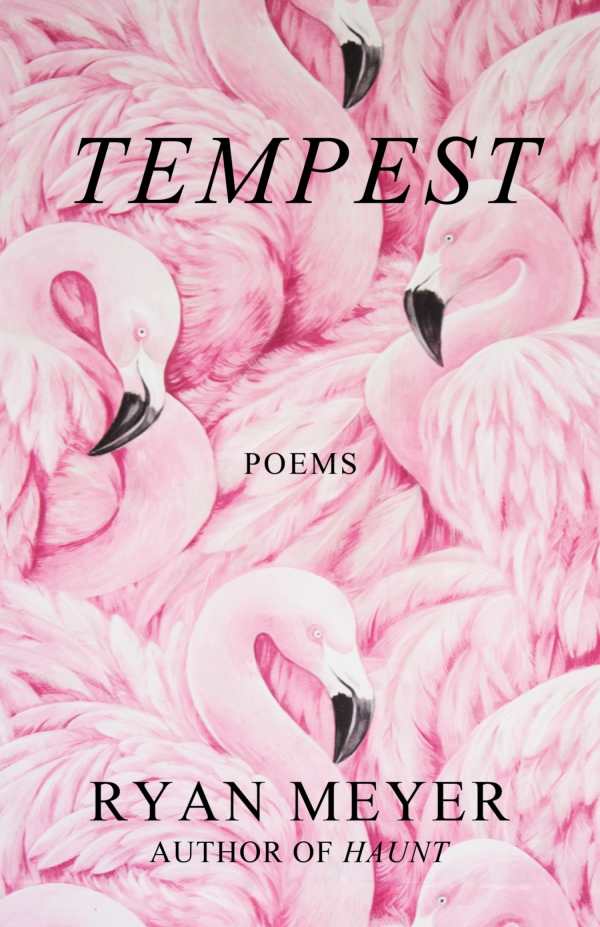Tempest
Poems
The poetry collection Tempest alternates between calm and passionate moments, working to convey family and identity anxieties.
Ryan Meyer’s poetry collection Tempest plays with metaphors and myths, assembling an assortment of short poems that filter ordinary experiences through vibrant imagery.
Elements from mythology stand out in the entries, as when Sisyphus recounts his fate and the power-hungry desires that landed him in the torturous underworld, where he feels a connection to the vultures that watch him. Magical realism is a factor, too: the narrator of “Antlers” laments the antlers that protrude “from my skull / Like antennae– / Tangible headaches.” They complicate his life, scraping ceilings as he moves around. But there are also more common subjects: in “Flamingo,” elements of a typical work day, like deadlines, are contrasted with “pink flamingo sunsets” that are reminiscent of a happy vacation.
Family and destiny are the collection’s major themes. The narrator in “Faulty Wiring” observes his mother falling to the floor in a fit; he tries to hold her hand, knowing that it will be more comforting for him than for her. And in “Giant,” the speaker and his friend conjure a specter of the future, a giant who has “résumé-paper skin / And a gut-full of jumped conclusions.” These polished portrayals ably evoke lived experiences, conveying the fears and anxieties of youth and aging in accessible terms.
The poems vary in length, ranging from a few lines to a few pages. Their precise language leads to lasting images; indeed, the book’s tendency toward comparisons is its most technical constant. In “Bouquet Cheeks,” a person in love realizes that observers have caught them holding hands; their cheeks become rosy, representing “A full bouquet.” Speaking from the perspective of weeds, another narrator says: “Like cats, we brush up / Against your legs / As a sign of peace.”
Introspective to the point of being oblique, many of the shorter poems reflect on personal experiences and premises, though, without offering a doorway in to wider audiences. “Twisted Ankles” begins with fingertips and palms, before moving to bare feet and ankles; it conveys anxiety, but about what is unclear. There are also evocative memories here, wrung for potential meaning, though oftentimes, ultimate meanings prove generally elusive. Joy and heartbreak occupy the poems in equal measure; these emotions come through with clarity throughout, even when individual references remain evasive.
The poetry collection Tempest alternates between calm and passionate moments, working to convey family and identity anxieties.
Reviewed by
Jeana Jorgensen
Disclosure: This article is not an endorsement, but a review. The publisher of this book provided free copies of the book and paid a small fee to have their book reviewed by a professional reviewer. Foreword Reviews and Clarion Reviews make no guarantee that the publisher will receive a positive review. Foreword Magazine, Inc. is disclosing this in accordance with the Federal Trade Commission’s 16 CFR, Part 255.

